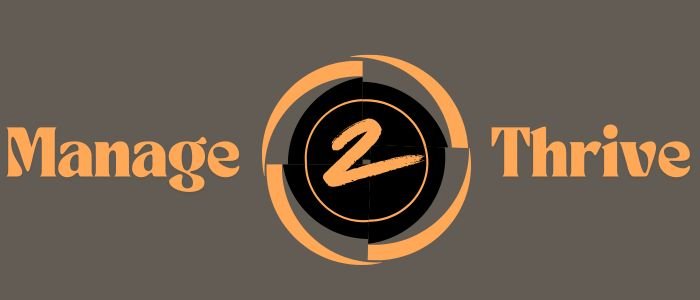The Power of Fitness: Tiny Habits, Dopamine, and the Path to Success Through this Family Life System
Whether you’re into it or not, you can’t deny that fitness is a vital pillar of health and wellness. The issue with many of us is that it is one of the most difficult habits to establish and maintain. With busy lives, family responsibilities, and demanding jobs, finding the time and motivation to exercise can feel like an impossible task. Behaviour Scientist, BJ Fogg, explains in his book Tiny Habits (an absolute must read in our opinion) that building sustainable fitness habits doesn’t have to be daunting. With the right system in place, even the smallest actions can lead to significant results.
Fogg says it’s important to break down the process of behaviour change into manageable chunks, because tiny, incremental steps are the key to long-lasting habits. This approach not only makes fitness more accessible but taps into the power of positive reinforcement—namely, the dopamine hit we get from completing tasks. By incorporating fitness into a structured, easy-to-follow Family Life System, individuals and families alike can finally gain control over their exercise routines and see real, lasting improvements in their health and wellbeing.

The Science Behind Tiny Habits
BJ Fogg’s behaviour model is grounded in three essential elements: motivation, ability, and prompts. Behaviour changes happen when these three factors are combined. When we look at fitness in this context, we see that people often have the motivation to get fit, but the ability and prompts are what typically fall short. For example, many people may set ambitious goals, such as running a marathon or working out five times a week, only to become overwhelmed and give up when life gets in the way.
The genius of Fogg’s Tiny Habits approach lies in scaling back those goals to something so small it’s almost impossible to fail. Instead of aiming to run five miles a day, start by putting on your running shoes or walking to the end of your driveway. By making the initial step easy, you build momentum, and that momentum is reinforced by the brain’s natural reward system. Each time you complete a small task, your brain releases dopamine, a chemical associated with feelings of pleasure and achievement. This positive reinforcement encourages you to repeat the action, gradually building it into a larger habit over time.
The Role of Dopamine in Fitness Success
Now we know the importance of dopamine for habit formation – acting as the brain’s “feel-good” reward system, when you complete even the smallest fitness task—whether it’s a five-minute walk, a set of push-ups, or a simple stretch—you will experience a boost in dopamine levels. This will wire your brain to crave more of that activity. Over time, this cycle of action and reward makes it easier to stick with your fitness routine.
Set targets that are manageable and celebrate every small win. This will train your brain to associate fitness with positive feelings rather than frustration.
Planning for Fitness Success
Success in life and fitness relies on planning. Without a clear plan, it’s easy to lose track of your goals, let distractions take over, or get discouraged when results don’t come quickly enough. Fogg emphasises that for habits to stick, they need to be tied to specific prompts or routines already present in your daily life. For example, if you always have a cup of coffee in the morning, you can make it a habit to do a short stretching routine while your coffee brews.
Planning your fitness routine in advance, even if it’s just in tiny increments, can help reduce the mental load and decision fatigue that often comes with exercise (that moment when you convince yourself that the 20 more minutes in bed is more beneficial than a HIT workout you saved to your Pinterest board).
When you have a plan in place (one that’s visible to you – and even better if visible to others), you know exactly what you need to do, when you need to do it, and how long it will take. This takes away the guesswork and makes it easier to follow through, especially on days when your motivation might be lower.
This is where the Family Life System comes in—a tool designed to streamline and simplify the daily tasks and responsibilities of family life, including fitness.
How a Family Life System with a Fitness Tile Can Help
The Manage2Thrive Family Life System is designed to help families plan, track, and manage their daily lives. With customisable “tiles” for different areas such as meals, chores, finances, and fitness. This system helps families stay on top of their goals and responsibilities in an organised and stress-free way. The fitness tile, in particular, is an invaluable resource for anyone looking to build lasting fitness habits.
Here’s how a Family Life System can support your fitness success:
- Built-in Planning: The fitness tile allows you to plan and schedule your workouts in advance. Whether it’s a daily walk, a yoga session, or a family fitness challenge, you can easily map out your activities and track your progress daily, weekly, monthly and yearly. This helps you stay accountable to your goals and ensures that fitness becomes a consistent part of your routine.
- Flexibility and Adaptability: Life is unpredictable, and sometimes your fitness routine needs to change on the fly. The Family Life System offers flexibility, allowing you to adjust your fitness schedule without feeling like you’ve fallen off track. You can start small with tiny habits and gradually increase your efforts as your confidence and stamina grow.
- Family Motivation: One of the best ways to stay committed to your fitness goals is to involve your family. With the fitness tile, you can set up family fitness challenges, encourage each other to stay active, and celebrate small victories together. This not only keeps you accountable but also fosters a supportive environment where fitness becomes a shared priority.
- Tracking Progress: A key feature of the Family Life System is the ability to track your progress over time. By regularly updating your fitness tile, you can see how far you’ve come, which is a great source of motivation. Tracking tiny wins, like completing a short workout or adding more steps to your day, reinforces the positive feelings associated with exercise and keeps you on the path to success.
- Dopamine-Driven Celebrations: The system encourages celebrating small wins, just like Fogg’s Tiny Habits approach. Each time you tick off a fitness task, whether it’s a quick stretch or a longer workout, you get that dopamine hit. By integrating these celebrations into your system, you’ll keep that cycle of motivation and achievement going.
Making Fitness a Family Affair
The beauty of incorporating fitness into a Family Life System is that it makes fitness a family affair. Everyone can participate in setting goals, tracking progress, and celebrating achievements. Whether it’s a group walk after dinner or a weekend fitness challenge, getting the whole family involved helps make fitness a natural, enjoyable part of everyday life. This is ideal for embedding early into the lives of young children to create, not only a fitness habit, but an organisation habit – for life.
For those managing busy schedules, the ability to tailor your fitness routine to your family’s needs and pace is invaluable. Rather than seeing exercise as a chore, the Family Life System’s fitness ‘tile’ means intentions are shared, manageable, and create goals that fit into your existing life.
Conclusion
Fitness doesn’t have to be overwhelming or complicated. As BJ Fogg’s Tiny Habits shows, building small, achievable fitness habits leads to long-term success. By incorporating fitness into a Family Life System, with features like planning, tracking, and family motivation, individuals can create a sustainable fitness routine that fits seamlessly into their lives. Each small win, reinforced by dopamine, builds momentum and encourages continued progress. So why juggle your fitness goals when you can thrive by planning and celebrating them every step of the way?




0 Comments